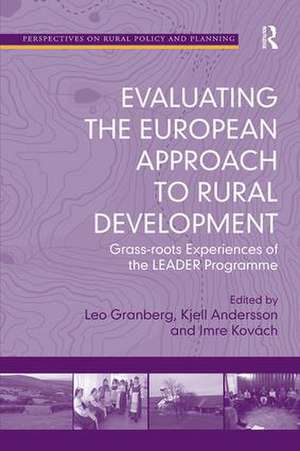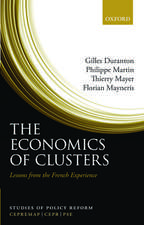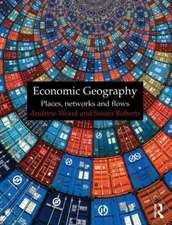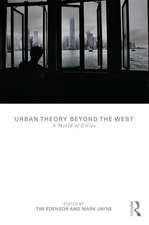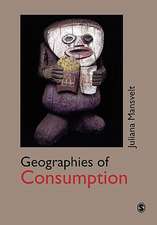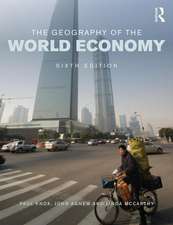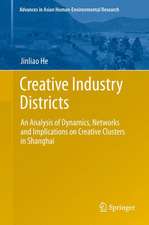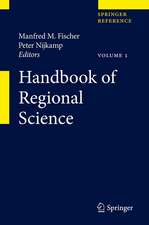Evaluating the European Approach to Rural Development: Grass-roots Experiences of the LEADER Programme: Perspectives on Rural Policy and Planning
Autor Leo Granberg, Kjell Anderssonen Limba Engleză Paperback – 12 feb 2018
| Toate formatele și edițiile | Preț | Express |
|---|---|---|
| Paperback (1) | 436.14 lei 43-57 zile | |
| Taylor & Francis – 12 feb 2018 | 436.14 lei 43-57 zile | |
| Hardback (1) | 1006.60 lei 43-57 zile | |
| Taylor & Francis – 28 mar 2015 | 1006.60 lei 43-57 zile |
Din seria Perspectives on Rural Policy and Planning
-
 Preț: 341.57 lei
Preț: 341.57 lei - 12%
 Preț: 299.52 lei
Preț: 299.52 lei - 12%
 Preț: 299.52 lei
Preț: 299.52 lei - 13%
 Preț: 338.33 lei
Preț: 338.33 lei - 24%
 Preț: 324.16 lei
Preț: 324.16 lei - 16%
 Preț: 297.72 lei
Preț: 297.72 lei -
 Preț: 145.32 lei
Preț: 145.32 lei - 14%
 Preț: 303.43 lei
Preț: 303.43 lei -
 Preț: 469.34 lei
Preț: 469.34 lei -
 Preț: 469.34 lei
Preț: 469.34 lei -
 Preț: 387.87 lei
Preț: 387.87 lei - 14%
 Preț: 310.81 lei
Preț: 310.81 lei -
 Preț: 328.05 lei
Preț: 328.05 lei -
 Preț: 389.66 lei
Preț: 389.66 lei -
 Preț: 384.86 lei
Preț: 384.86 lei -
 Preț: 389.66 lei
Preț: 389.66 lei - 20%
 Preț: 259.90 lei
Preț: 259.90 lei
Preț: 436.14 lei
Nou
Puncte Express: 654
Preț estimativ în valută:
83.48€ • 90.71$ • 70.17£
83.48€ • 90.71$ • 70.17£
Carte tipărită la comandă
Livrare economică 21 aprilie-05 mai
Preluare comenzi: 021 569.72.76
Specificații
ISBN-13: 9781138547285
ISBN-10: 113854728X
Pagini: 264
Dimensiuni: 156 x 234 x 14 mm
Greutate: 0.45 kg
Ediția:1
Editura: Taylor & Francis
Colecția Routledge
Seria Perspectives on Rural Policy and Planning
Locul publicării:Oxford, United Kingdom
ISBN-10: 113854728X
Pagini: 264
Dimensiuni: 156 x 234 x 14 mm
Greutate: 0.45 kg
Ediția:1
Editura: Taylor & Francis
Colecția Routledge
Seria Perspectives on Rural Policy and Planning
Locul publicării:Oxford, United Kingdom
Cuprins
Contents: Introduction: LEADER as an experiment in grass-roots democracy, Leo Granberg, Kjell Andersson and Imre Kovach; LEADER and local democracy: a comparison between Finland and the United Kingdom, Johan Munck af Rosenschold and Johanna Loyhko; A perspective of LEADER method in Spain based on the analysis of local action groups, Javier Esparcia, Jaime Escribano and Almudena Buciega; The LEADER program in Hungary - bottom-up development with top-down control?, Bernadett Csurgo and Imre Kovach; The democratic capabilities of and rhetoric on LEADER LAGs in the EU - the Danish case, Annette Aagaard Thuesen; A political perspective on LEADER in Finland - democracy and the problem of 'troublemakers', Marko Nousiainen; LEADER and possibilities of local development in the Russian countryside, Leo Granberg, Jouko Nikula and Inna Kopoteva; Questioning the gender distribution in Danish LEADER LAGs, Annette Aagaard Thuesen and Petra Derkzen; LEADER LAGs: neocorporatist local regimes or examples of economic democracy?, Giorgio Osti; Bottom-up initiatives and competing interests in Transylvania, Denes Kiss and EnikA' Veress; Can renewable energy contribute to poverty reduction? A case study on Romafa, a Hungarian LEADER, Ildiko Asztalos Morell; Developing or creating instability? Development management, scale and representativeness in Tunisia, Aude-Annabelle Canesse; Conclusion: the LEADER colours on the democracy palette, Leo Granberg, Kjell Andersson and Imre Kovach; Index.
Notă biografică
Leo Granberg is Professor of Rural Studies in Social Sciences, Aleksanteri Institute, University of Helsinki, Finland. Kjell Andersson is Professor at Åbo Akademi University, Finland and Imre Kovách is Scientific Advisor, Institute for Sociology, Centre for Social Sciences, Hungarian Academy of Sciences, Budapest, Hungary, and Professor, Department of Sociology and Social Policy at Debrecen University, Hungary.
Recenzii
’One of the most important and systematic investments in rural development, the LEADER programme in the EU has many lessons for the entire world. By looking at single country applications of the programme, the premise, promise and perils of this grass-roots approach to rural development are cogently addressed. The resilience and sustainability of the approach is brilliantly examined and assessed through combining comparative case studies and focusing on the key issue of social and political processes, rather than material outputs.’ Cornelia Butler Flora, Kansas State University, USA ’LEADER programmes, born to support bottom-up development in marginal areas, have promoted a new way of thinking about agriculture and rural development policies. Now that the transition to a sustainable agriculture has become a policy priority, the experience gained with LEADER programmes represents a precious reservoir of ideas and tools for change. The book, giving a broad overview and analysis of the application of the programme in countries relatively unknown in English language literature, is an excellent outcome of a timely, well documented and rigorous work.’ Gianluca Brunori, University of Pisa, Italy
Descriere
This book presents up-to-date research results on LEADER’s achievements and restrictions at the local level in a comparative way in order to discuss its merits and problems. What makes LEADER important is not only that it has a major role in rural development efforts, but also that it has a pioneering role in the new type of governance, participatory democracy. Asking whether LEADER strengthens local democracy or not, this book also looks at how it affects the power balance among stakeholders, between national and local actors and between genders.
